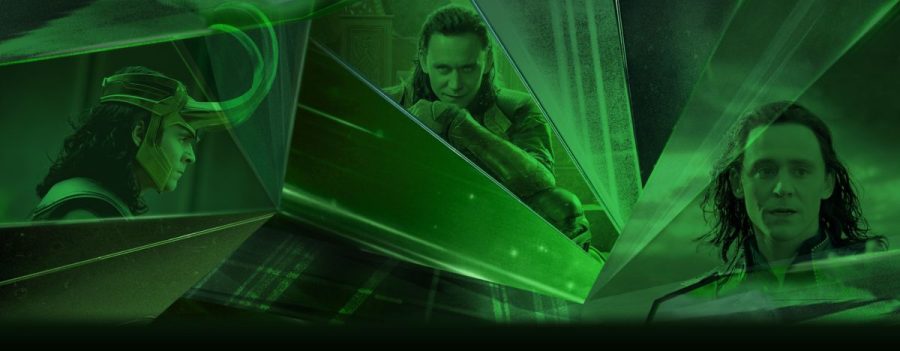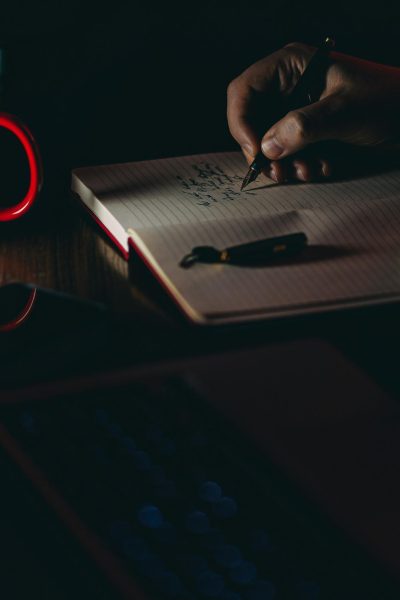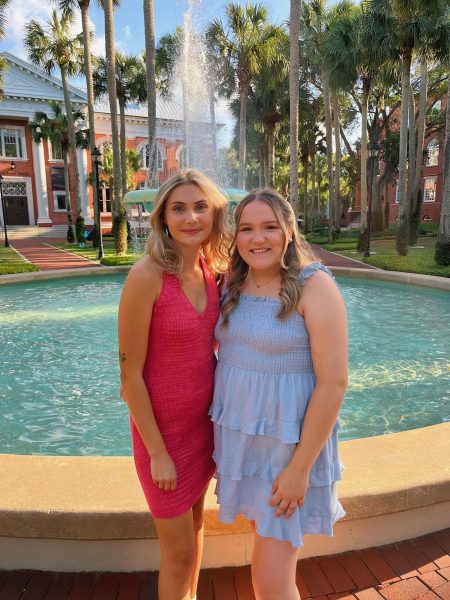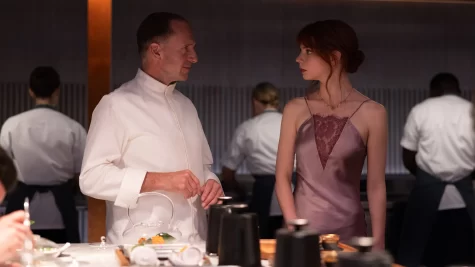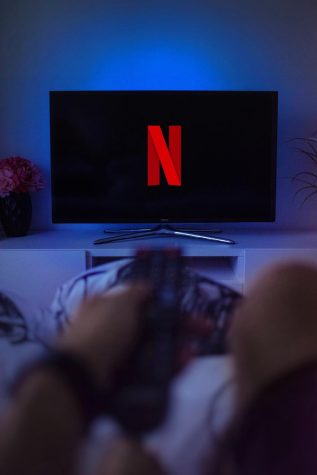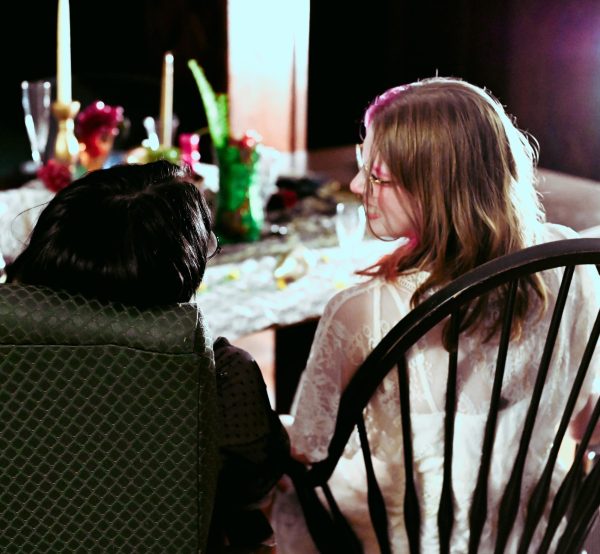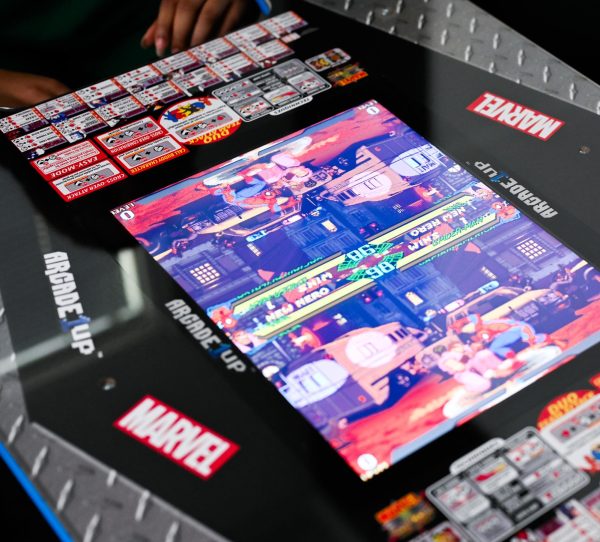Loki and the Multiverse: To be Continued
Warning: Spoilers
“Loki” follows Marvel’s iconic villain as he travels through time and begins to explore the Multiverse.
After being introduced in the Marvel Cinematic Universe as the brother of a central character in 2009 and theatrically playing the role of the main villain in 2012, Loki (always played by Tom Hiddleston) has finally received the attention he consistently desired. While Marvel may not have erected golden statues that resemble his likeness or finally allowed him to sit on the throne of Asgard, the God of Mischief did receive his own Disney+ show.
The first episode, “Glorious Purpose,” picks up where we last saw Loki: stealing the Tesseract during the commotion of the “Avengers: Endgame” time heist. It is important to remember that the God of Mischief in this series is not the Loki we have come to know. This is vengeful 2012 Loki, who just lost the war he started. After the iconic Marvel logo sequence finishes, we find Loki in Mongolia. In the sandy desert, the god suffers yet another defeat. The Tesseract is taken from him. He is promptly arrested “for crimes against the Sacred Timeline” by a group of soldiers acting on “behalf of the Time Variance Authority.” The God of Mischief is reduced to nothing more than a Variant.
He is promptly taken to the Time Variance Authority, often referred to as the TVA. On the outside, it seems to be a sort of bureaucratic institution. An informational cartoon narrated by a talking clock named Miss Minutes informs Loki and the audience of a few crucial details. First, there was a multiversal war in which numerous timelines battled one another to be the dominant one. This war almost led to the destruction of everything.
However, all-knowing beings called the Time-Keepers emerged and reorganized the Multiverse into a single timeline (later called the Sacred Timeline) to restore peace. Second, branches in the Sacred Timeline can occur if people veer off the predestined path. These people are called variants, and their actions will create a nexus event in which the timeline could branch into madness. Third, the Time Variance Authority and all its workers were created by the Time-Keepers to protect the Sacred Timeline and combat any nexus events, “For all time. Always.”
Now labeled Variant L1130, Loki is brought before Judge Renslayer (played by Gugu Mbatha Raw) to answer for his crime: sequence violation 7-20-89. After a fruitless attempt to utilize his powers, the god of seemingly no tricks is found guilty of his crimes and sentenced to be reset. A well-dressed man steps in and saves Variant L1130 from his doom in the nick of time, insinuating that he thinks the variant will be of some use. We soon learn that Loki’s savior is Agent Mobius (played by Owen Wilson). Mobius provides comedic relief in the rest of the first episode that can only be described as gut-wrenching. Tom Hiddleston’s performance of an emotion we have rarely seen from Loki—sadness—shows his acting range. While Loki sheds tears as he learns the “Glorious Purpose:” his future was destined to be in the Sacred Timeline (his cinematic storyline as delineated in the MCU), I cried for him.
The action and pacing of the six-part season begin to pick up in episode two and don’t slow down until the very end of episode six. In “The Variant,” Mobius enlists the help of Loki in tracking down a variant that has been cleverly outrunning every agent sent after them. Why is Loki the perfect person for the mission? Well, the variant is another Loki. In the final moments of episode two, he finally comes face to face with a version of himself that is unlike any other. Stepping out of the shadows and pulling off the hood of their cloak, the variant reveals themself. It’s a woman, and she appears to be nothing like Loki. In a beautifully orchestrated moment of chaos, the variant slips away. As multiple branches diverge from the main timeline and Mobius yells after him, Loki decides to follow.
Loki’s decision puts him in a life-threatening situation on Lamentis-1, a moon bound for an apocalyptic level event. Sylvie (played by Sophia Di Martino), the female variant, agrees to work with her male counterpart to evade imminent death. On Lamentis-1, Sylvie reveals a bombshell about the TVA that changes everything the characters and audience know about the organization. When all seems lost and with death’s jaws opening, Sylvie discloses that she escaped from the TVA as a child and has been hiding in apocalyptic timelines ever since. The two begin to form a romantic connection that Hiddleston and Di Martino execute fantastically. The chemistry of their characters is evident from the smallest gesture to the look in their eyes.
The connection they form creates a unique branched timeline that the TVA has never experienced. Alerted to the pair’s location, Mobius saves them just as the moon around them is destroyed. Arriving back at the TVA, the Loki’s are immediately separated, and further chaos ensues. Secrets are exposed, and the foundations of the Time Variance Authority crumble as the truth about the organization is thrust into the open. The actions of the Loki duo have dire consequences for both: death via pruning.
Just kidding! The only thing that can kill a Loki is a purple Titan hellbent on eradicating half the universe’s population. Before Sylvie prunes herself, Judge Renslayer informs her about the Void. The Void is the end of time, and all reset timelines are transferred there. This is where Loki wakes up to find three Loki’s staring back at him. Sylvie soon joins her male counterpart, and they start out on another mission: discover who is behind the Void and ultimately the TVA. In epic displays of magic, they battle their way beyond the Void to the endpoint of time. While there, they meet the mastermind behind it all. The pair are given a choice, and one of their choices has drastic effects on the Multiverse.
While I thoroughly enjoyed the six-part series, a few aspects of the show didn’t sit well with me. First, Loki’s character development in the show seemed rushed and unrealistic. It took several movies for the character of Loki to evolve from a brother seeking revenge to a brother willing to sacrifice his life for Thor. It only took one episode for similar character development to occur in this Loki. I felt that it simplified a rather complex character that has been evolving for years.
Second, I found it rather odd—and a little unsettling—that Loki’s love interest is just another version of himself. Was it vital for him to have a love interest, or was it simply a plot device? Third, the pacing of the show was too swift. I understand that a lot needed to be covered in the show, but I still thought that the last three episodes were rushed with just a few slower moments thrown in between. Lastly, it was disappointing that many exciting concepts were introduced but not fully expanded upon. I was still left with many fundamental questions that weren’t answered by the finale’s closing scene.
Despite the few flaws I found in the show, the viewing experience was enjoyable. The show was brimming with powerful performances by the actors, some heartbreaking and others hilarious. The introduction of said characters into the MCU was expertly executed, each actor playing their intended part to a tee. Owen Wilson brought a new source of comedic relief, and Sophia Di Martino brought another complex female character. Additionally, the introduction of a powerful villain excites me for the future of the MCU.
While new Marvel fans can watch the series with minimal background information, it does help to have a basic knowledge of Loki’s character and “Avengers: Endgame.” The series has the potential to cast a wider net and bring in a fresh audience that hasn’t experienced the main thirteen-year storyline of the MCU. Despite the shortlist of shortcomings, I believe it’s essential for every Marvel fan to watch the “Loki” series in its entirety. The show’s conclusion leaves off on a giant cliffhanger (as Marvel is known to do) and has significant implications for the future of the Marvel Cinematic Universe.


